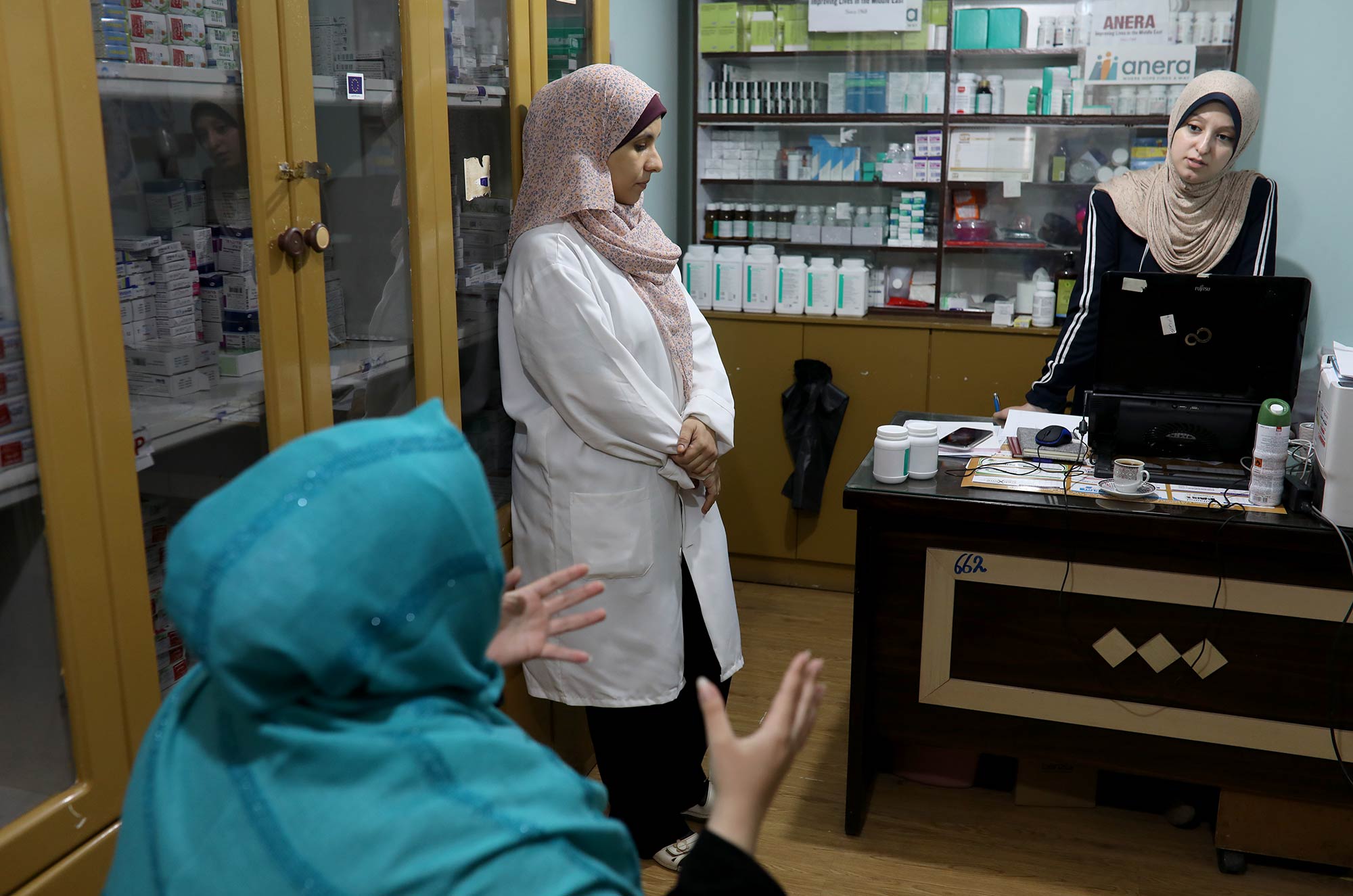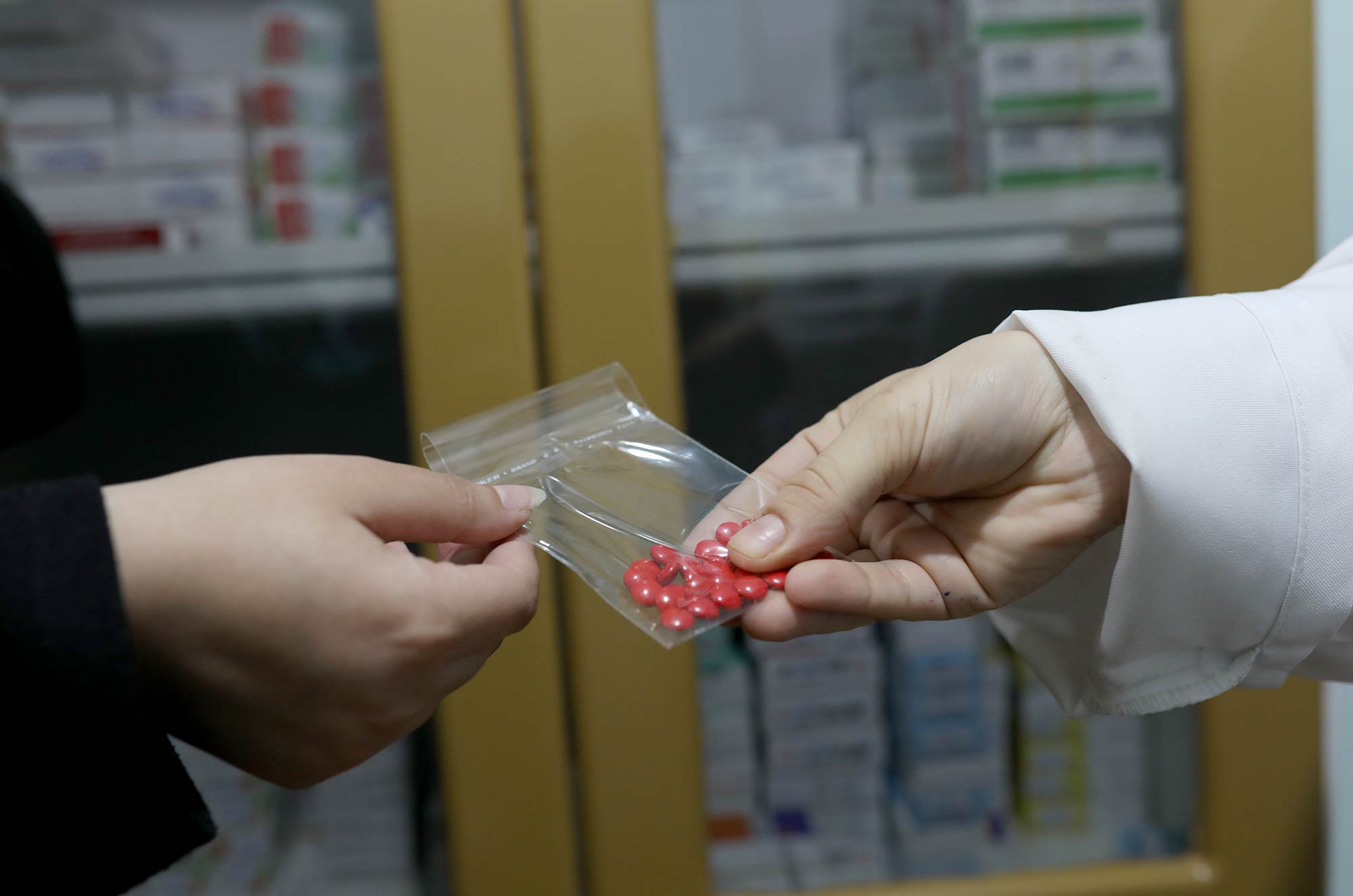HEALTH
Nutritional supplements for women in Gaza
Jul, 2019
“Seventy percent of [our patients] have anemia. Every day we receive 30 new cases.” -- Feryal Thabet, the Women’s Health Center
A crowd has formed on a narrow street in the Bureij refugee camp in central Gaza. All of them are women, ranging widely in age. Some are pregnant. They have come to visit the Al Bureij Women’s Health Center, which offers integrated medical, social and psychological services.
Just inside the Center’s entrance, women wait for the clinic’s medical services. Some are here to pick up medicines at the pharmacy. Others sit in the medical laboratory or wait in the obstetrics and gynecology clinic.
Dr. Marwa Bilbisi, a pharmacist at the center, tells us about her work and the facility’s role. "Women are marginalized. They need comprehensive care, and we try to provide it at this center."


Abeer, 26, is one of the patients picking up her medication. She is a psychologist who has been suffering from anemia for the last eight years. She has suffered a range of symptoms, including fatigue, muscle weakness, diminished cognitive clarity, dizziness, depression and headaches.
"I was in my first year of college when I started suffering from fatigue. I couldn’t focus on studying and I spent my days sleeping, since I was always depressed. I couldn't live a normal college life," Abeer says.
Recently she has begun taking a combination of ferrous sulfate and folic acid tablets. Medical Education Training and Development (METAD) donated the iron supplements and Anera distributed them to clinics like the one Abeer visits. The two medications are most effective at treating nutritional deficiencies when taken together.
"Since I have started taking the supplements, my life is returning to normal. Now I can work all day without getting tired. I’m finally smiling again," Abeer says.
Living circumstances like family size, sanitation conditions, water supply, proper sewage systems, pregnancies, diet and malnutrition are all factors associated with anemia. The increasing levels of poverty and food scarcity in Gaza heighten the risk factors for anemia. An estimated 68 percent of households in Gaza are food insecure.


“We see 800 patients every month,” says Feryal Thabet, chairwoman of the Women’s Health Center. “Seventy percent of them have anemia. Every day we receive 30 new cases.”
"When parents can barely provide healthy food for their families, mothers often put their children's health ahead of their own. So mothers often aren’t getting enough good nutrition," Thabet says.
Rates of anemia increase with age. Women aged 40-49 are four times more likely to suffer from anemia than adolescent women.
"Another big problem is that some women don’t really know about anemia, so an effective health education strategy is needed to improve women’s awareness and attitudes in Gaza," says Thabet.
METAD generously donated 24,000 coated oral tablets of ferrous sulfate and folic acid. MADRE funded the shipping and handling of the donation. Anera distributed the nutritional supplements to 16 clinics and hospitals across Gaza.


